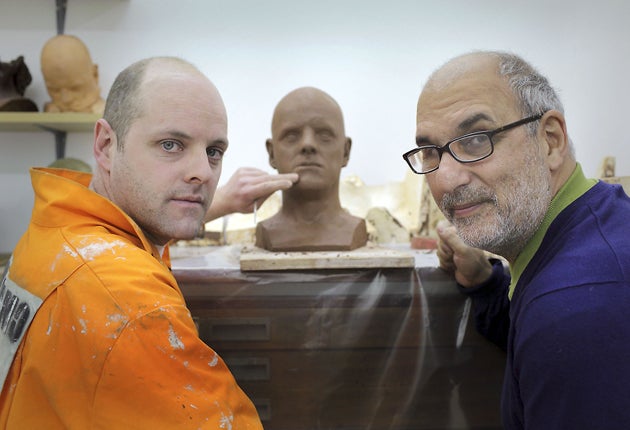Imagine: Art is Child's Play, BBC1<br/>A Century of Fatherhood, BBC4
Yentob's heads up on the artist's inner child

It's always a touch bruising to the ego to realise that, though the specifics vary, our most significant childhood memories find uncanny parallels in those of the next person.
Unless the next person is the artist Tracey Emin, who was among the YBAs reminiscing about the creative impulses of their salad days in Imagine: Art Is Child's Play.
Apparently a pre-teen Emin made miniature scenes from old shoeboxes, building bars out of cotton reels with drinkers clipped from the pages of magazines. Wait a second, I did that! And so did a million others, I expect, but none of us is likely to be hailed an artistic genius (or even decried as a fake). And therein lies the fuzzy logic of the programme, which presenter Alan Yentob promised would explore the link between children's play and adult art.
Play during childhood, psychoanalyst Adam Phillips reminds us, is a serious business. It's how we negotiate our early encounters with the world, testing the boundaries and finding the limits – a practice all the artists interviewed agreed was not unlike their creative process. That's a virtue if you are Picasso and spent "four years learning to paint like Raphael and a lifetime trying to draw like a child", or a flaw if you are standing in Tate Modern opining that your four-year-old could do that.
So, the interesting question here was why, when the rest of us have put away childish things, artists are able – compelled, even – to continue to explore in this manner? Yentob's trips down memory lane with Emin, Grayson Perry and Gavin Turk et al were entertaining and I must admit that my play-post offices were mundane in comparison with Perry's complex, combative relationship with his childhood teddy Alan Measles. But the how and why of artists' capacity to maintain a part of their brain free from received inhibitions and conclusions remained mysterious (though Emin suggested that a couple of bottles of wine before a studio session might be key).
It's unfortunate that, as the face of the arts on the Beeb, Yentob manages to combine the flaws at both ends of the genre's spectrum, being off-puttingly highbrow without serious depth. Here he achieved self-parody to such an extent that I began to wonder if they just filmed him nodding sagely and chuckling conspiratorially and then spliced it together with footage of the artists chatting away.
Childhood memories also provided a way in to A Century of Fatherhood, the first of a three documentaries tracing the role of fathers over the past century.
The thesis – that dads in the olden days were either cold, distant tyrants or boozy wife-beaters – was laid on a bit thick and Charles Dickens was rather unfairly held up as chief literary perpetuator of the stereotype.
Dickens's work is, if anything, ambiguous on the subject of father figures and the programme could have benefited from a little more of that tension. Nobody can seriously believe that every Edwardian father was a frigid automaton, but nor are we going to buy that they were all lovely cuddly daddies.

Watch Apple TV+ free for 7 days
New subscribers only. £8.99/mo. after free trial. Plan auto-renews until cancelled

Watch Apple TV+ free for 7 days
New subscribers only. £8.99/mo. after free trial. Plan auto-renews until cancelled
Still, the sugary voice-over couldn't spoil some brilliant first-hand testimonies from men and women who grew up in the first decades of the 20th century and spoke with still-raw emotion about fathers lost 60 years ago or more.
Touching on the social upheavals of war and a changing economic and industrial landscape, the programme left you with a strong impression of the very particular violence with which male roles have been buffeted over the course of the past 100 years. Above all else, however, it was a warm, and occasionally very painful, portrait of familial love.
Subscribe to Independent Premium to bookmark this article
Want to bookmark your favourite articles and stories to read or reference later? Start your Independent Premium subscription today.

Join our commenting forum
Join thought-provoking conversations, follow other Independent readers and see their replies